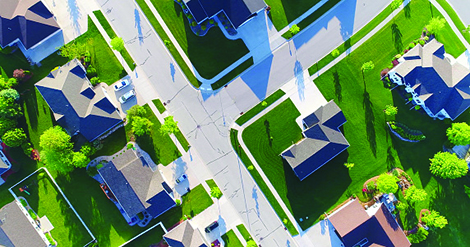State lawmakers made themselves popular earlier this year by expanding Washington’s senior property tax exemption and deferral program for low-income senior citizens, individuals with disabilities, and veterans.
Senior advocates such as AARP joined others in praising Senate Bill 5160, which the Legislature passed during its 2019 session. Beginning with tax collections in 2020, the legislation makes it easier for property owners to reach the qualifying income thresholds for exemptions and deferrals by eliminating the current flat income rate. The previous requirement of $40,000 or less in annual income will be replaced with an income level equal to 65 percent of a county’s median income.
In Pierce County, that raises the limit to about $43,000, said Assessor-Treasurer Mike Lonergan, who joined other county assessors statewide in urging legislators to relax the income requirement.
King County Assessor John Wilson said the new threshold in his county will go up to an estimated $55,000, helping more people “stay in their homes.â€
Statewide, the change “will provide much-needed relief†for seniors on fixed incomes who struggle to pay their property taxes, said Cathy MacCaul, AARP’s advocacy director. She singled out key legislators who led the efforts to pass the legislation, including state Sen. Manka Dhingra of King County.
“Recent property tax changes have dramatically increased obligations in high cost-of-living areas, especially for our seniors and veterans who are on fixed incomes and are being priced out of their homes,†said Dhingra, whose district includes the Kirkland area. Changing the income rule to account for regional differences allows exemptions to be “based on local cost of living,†she added.
Sixty-one is still the minimum age to qualify for partial property tax exemptions, or any age if the owner is fully disabled.
In Pierce County alone, about 12,000 homeowners are receiving the exemption. Lonergan said new applicants for the tax break can sign up at the assessor-treasurer office in Tacoma or by mail. The same is true in King County.
The second half of property tax collections for 2019 is coming up. Payments are due Oct. 31. The first half was due April 30.
Annual property tax is determined by multiplying property value (in thousands of dollars) by the combined rate of all taxing districts where the property is located. Public school funding accounts for over half of the property tax.
Wilson noted that decisions made by elected officials and voters, not rising values of homes, are usually the cause of higher property taxes.
“Most people don’t realize that the fluctuating value of your property has less to do with changes in your tax bill, than do changes in state law and measures approved by voters,†said Wilson. “Decisions made by lawmakers and voters determine the total amount of tax to be collected. The value of your property determines your share of that total amount.â€
In 2018, taxes increased for nearly every property owner, due to the Legislature adding a second state school levy in an attempt meet the court-ordered state funding of K-12 education. This year, the second half of that equation takes effect—reduction of local school operating levies to no more than $1.50 per $1,000 of property value. That is resulting in lower taxes for some homeowners and higher for others, depending on other tax burdens in their communities.
In Pierce County, for instance, in addition to schools, property taxes pay for city and county governments, fire protection and emergency medical services, parks, libraries, ports, Sound Transit, and flood control. This year, the $1.3 billion the county will collect will be divided among those services. Fees for land conservation, noxious weed control and surface water management are also included on property tax statements.
Lonergan cautioned homeowners not to conclude that an increase in value this year will result in a tax increase next year.
“It’s a math equation,†he said. “Your tax in 2020 will be the 2019 value multiplied by the combined tax rates of your school district, city, fire district and so forth, added to the state and countywide property taxes that everyone pays. A lot depends on votes by the public and the Legislature.â€
